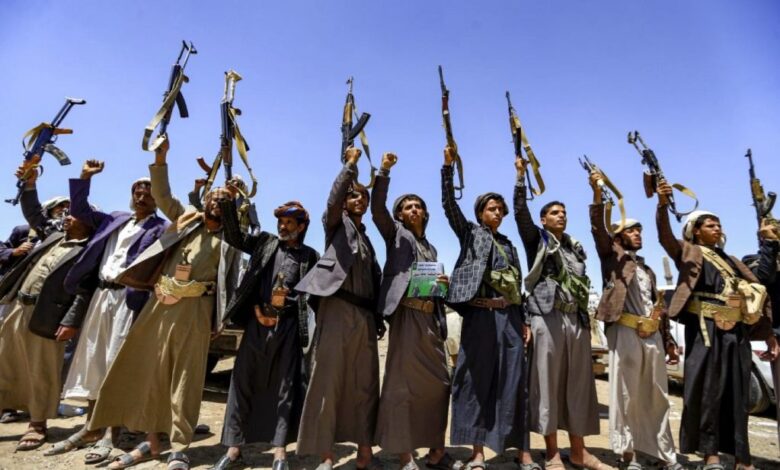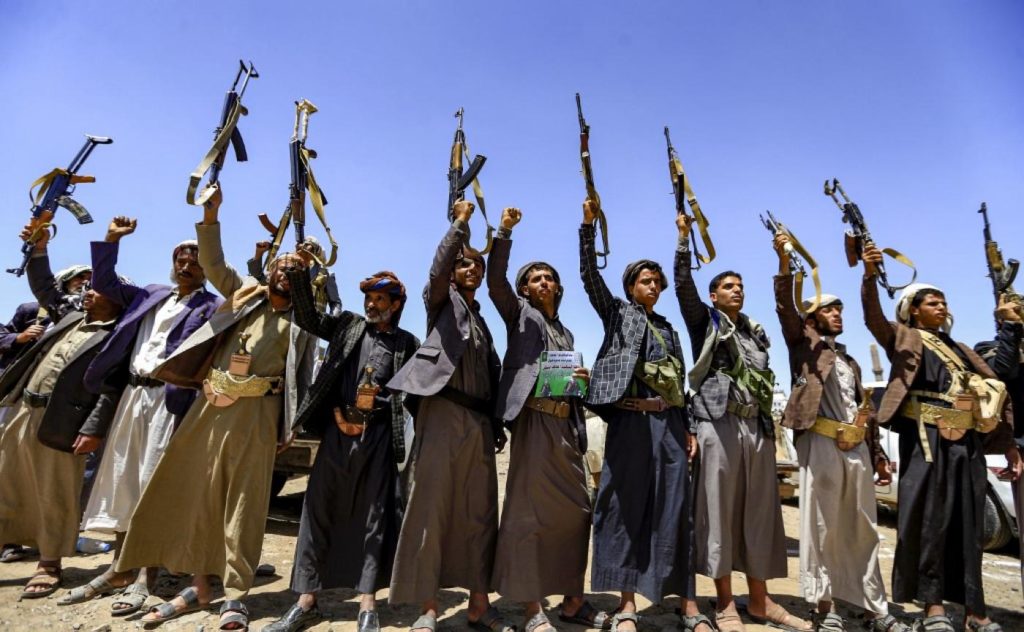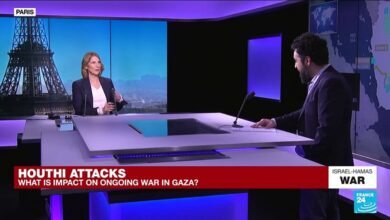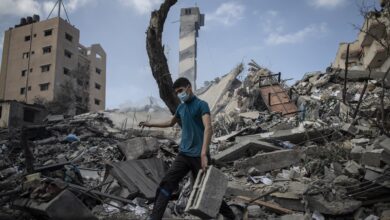
Pakistan Strikes Militant Targets in Iran: Retaliation or Escalation?
Pakistan carries out retaliatory strikes on militant targets in Iran, raising tensions between the two neighboring countries. This recent escalation comes after a series of cross-border attacks attributed to militant groups operating in Iran, highlighting the complex security challenges facing both nations.
The strikes have sparked international concern and fueled speculation about the potential for further conflict in the region.
The incident has triggered a wave of reactions from various stakeholders, including the international community. Pakistan has defended its actions, citing security concerns and the need to protect its citizens from terrorist threats. Iran, on the other hand, has condemned the strikes, calling them a violation of its sovereignty and a threat to regional stability.
The situation remains fluid, with the potential for further escalation or de-escalation depending on the actions of all parties involved.
Pakistan’s Perspective
Pakistan’s retaliatory strikes against militant targets in Iran have been a significant development in the complex relationship between the two neighboring countries. Understanding Pakistan’s perspective on these strikes is crucial for grasping the underlying dynamics and potential implications.
Pakistan’s Stated Reasons for the Strikes
Pakistan’s government has officially stated that the strikes were carried out in response to a series of attacks on Pakistani security forces by militant groups operating from Iranian soil. These attacks, which have resulted in casualties and destabilized the border region, have been attributed to various militant organizations, including the Balochistan Liberation Army (BLA) and Jaish-ul-Adl.
Pakistan has accused these groups of receiving support and safe haven in Iran, a claim that Iran has vehemently denied.
Domestic Political Implications of the Strikes
The strikes have generated significant domestic political debate in Pakistan. While some political parties and commentators have praised the government’s assertive response, others have raised concerns about the potential for escalating tensions with Iran. The strikes have also highlighted the challenge of balancing Pakistan’s security concerns with its diplomatic relations with Iran.
Pakistan’s Security Concerns Regarding Militant Groups Operating in Iran
Pakistan’s security concerns regarding militant groups operating in Iran stem from a number of factors. These groups, often with links to separatist movements in Balochistan, have carried out numerous attacks targeting Pakistani security forces and civilian infrastructure. Pakistan fears that these groups could destabilize the country’s southwestern province and potentially undermine its national security.
The presence of these groups in Iran, even if not directly supported by the Iranian government, poses a significant challenge to Pakistan’s efforts to combat militancy and maintain stability in the region.
Iran’s Response: Pakistan Carries Out Retaliatory Strikes On Militant Targets In Iran
Iran’s official reaction to the retaliatory strikes carried out by Pakistan was swift and condemnatory. Tehran vehemently denied any involvement in the militant activities that prompted the strikes and accused Pakistan of violating its territorial integrity. The Iranian government summoned Pakistan’s ambassador to express its strong disapproval and demanded an explanation for the strikes.
Potential Iranian Countermeasures
Iran’s response to the Pakistani strikes was likely to be multifaceted. Given the sensitive nature of the situation, Tehran could consider several countermeasures, including:
- Diplomatic Channels:Iran might intensify diplomatic efforts to address its concerns with Pakistan, possibly through bilateral talks or engaging regional organizations like the Organization of Islamic Cooperation (OIC). This could involve seeking international pressure on Pakistan to refrain from similar actions in the future.
- Military Posturing:As a show of force, Iran might increase its military presence along the shared border with Pakistan, potentially conducting drills or deploying additional troops. This would serve as a deterrent against future Pakistani incursions and underscore Iran’s resolve to protect its territorial integrity.
- Sanctions and Trade Restrictions:Iran could consider imposing economic sanctions or restricting trade with Pakistan as a means of demonstrating its displeasure and exerting pressure on the Pakistani government. This, however, would likely be a last resort due to the potential economic repercussions for both countries.
Security Situations in Iran and Pakistan
The security situations in Iran and Pakistan are complex and interconnected. Both countries face significant challenges from internal and external threats, including:
- Terrorism:Both Iran and Pakistan have experienced significant terrorist activities, often linked to sectarian violence, separatist movements, or transnational groups.
- Regional Instability:The volatile security situation in the wider region, particularly in Afghanistan and the Middle East, spills over into both Iran and Pakistan, creating a complex security environment.
- Internal Political Divisions:Internal political divisions and instability in both countries can exacerbate security challenges, providing fertile ground for extremist groups to operate.
While both countries face security threats, the specific nature and scale of these challenges vary. Iran, for instance, has a more centralized and authoritarian government, which gives it greater control over its security apparatus. Pakistan, on the other hand, faces greater challenges from internal instability and a more fragmented security landscape.
Regional Implications

The retaliatory strikes by Pakistan on militant targets in Iran have the potential to significantly impact regional stability, given the complex geopolitical dynamics in the Middle East. The situation raises concerns about escalation and the possibility of a wider conflict, particularly with the involvement of other regional actors.
Impact on Regional Stability
The strikes have heightened tensions between Pakistan and Iran, two major regional powers. This escalation could lead to a cycle of retaliation, further destabilizing the region. The potential for unintended consequences is high, as both countries have significant regional influence and connections to various actors.
“The potential for unintended consequences is high, as both countries have significant regional influence and connections to various actors.”
The situation could also embolden other regional actors, such as the Islamic State group, to take advantage of the instability and increase their activities. The strikes have the potential to exacerbate existing conflicts and create new ones, further destabilizing the region.
Role of Other Regional Actors
Several regional actors have a vested interest in the situation and could play a significant role in shaping the outcome. * Saudi Arabia:Saudi Arabia, a regional rival of Iran, could see the situation as an opportunity to further weaken its adversary.
It’s a grim reminder of the escalating tensions across the globe. While Pakistan carries out retaliatory strikes on militant targets in Iran, the situation in Ukraine continues to deteriorate with deadly Russian strikes pounding Ukrainian cities. The world watches with growing concern as these conflicts escalate, leaving countless lives in jeopardy.
The situation in Pakistan, while seemingly a regional conflict, also serves as a reminder of the global reach of instability and the need for peaceful resolutions.
It could provide support to Pakistan or even engage in its own actions against Iran.
The United States
The United States has close ties to both Pakistan and Iran. It could face a difficult balancing act in trying to de-escalate the situation while maintaining its strategic interests in the region.
Turkey
Turkey has its own complex relationship with both Iran and Pakistan. It could play a mediating role in the conflict or choose to remain neutral.
Consequences for the Broader Middle East
The strikes could have significant consequences for the broader Middle East, further destabilizing an already volatile region. The situation could:* Exacerbate sectarian tensions:The conflict could further inflame sectarian tensions between Sunni and Shia Muslims in the region.
Undermine regional security
The escalation could lead to a breakdown in regional security, increasing the risk of terrorism and instability.
Pakistan’s retaliatory strikes on militant targets in Iran raise concerns about regional instability, especially considering the ongoing conflict in Yemen. The Houthis, fighting a protracted war against the Saudi-led coalition, are facing off against a superpower that’s mastered the art of propaganda and disinformation, as seen in the recent article on the Houthis’ struggle.
The situation in Iran and the wider Middle East is becoming increasingly complex, with each event potentially escalating tensions and jeopardizing fragile peace agreements.
Impact energy markets
The news of Pakistan carrying out retaliatory strikes on militant targets in Iran is a reminder of the complex and often volatile relationships between countries in the region. It’s interesting to note that in Lebanon, strange calls can precede Israeli attacks , which suggests that there are often hidden layers of communication and strategy at play.
While the Pakistani strikes are likely a response to specific threats, the situation highlights the need for increased dialogue and understanding between regional powers to prevent further escalation.
The conflict could disrupt oil and gas supplies, impacting global energy markets.
International Reactions
The retaliatory strikes by Pakistan on militant targets in Iran have drawn widespread international attention and triggered a range of responses from key players. These reactions reflect concerns about regional stability, the potential for escalation, and the need for diplomatic engagement to de-escalate the situation.
Responses of Key International Players
The international community has expressed concerns about the escalating tensions between Pakistan and Iran. Several key players have issued statements urging restraint and calling for dialogue to resolve the situation.
- The United Stateshas expressed deep concern over the recent violence and called for all parties to exercise restraint and avoid further escalation. The US State Department urged both countries to engage in dialogue and find a peaceful resolution to their differences.
- The United NationsSecretary-General has also expressed concern over the situation and called for all parties to exercise restraint and engage in dialogue to find a peaceful solution. The UN has also offered its good offices to facilitate dialogue between Pakistan and Iran.
- The European Unionhas condemned the violence and called for an immediate end to hostilities. The EU has also urged both countries to engage in dialogue and seek a peaceful resolution to their differences.
Potential Impact of the Strikes on International Relations
The retaliatory strikes by Pakistan on militant targets in Iran have the potential to significantly impact regional and international relations. These strikes could:
- Further escalate tensionsbetween Pakistan and Iran, potentially leading to a wider conflict.
- Damage relationsbetween Pakistan and Iran, which have historically been characterized by cooperation and mutual understanding.
- Undermine regional stability, as the conflict could spill over into neighboring countries.
- Create a new front in the global war on terror, as both countries are considered important allies in the fight against terrorism.
Role of International Diplomacy in De-escalating the Situation, Pakistan carries out retaliatory strikes on militant targets in iran
International diplomacy plays a crucial role in de-escalating the situation between Pakistan and Iran.
- Dialogue and mediationare essential to prevent further escalation and find a peaceful resolution to the conflict.
- Confidence-building measures, such as the resumption of border crossings and economic cooperation, can help to reduce tensions and foster trust between the two countries.
- International pressureon both countries to exercise restraint and engage in dialogue can also help to de-escalate the situation.
Future Prospects
The recent escalation of tensions between Pakistan and Iran, marked by retaliatory strikes, raises concerns about the potential for further conflict. However, both countries have a history of navigating complex relations, and various factors could influence the trajectory of their future interactions.
Potential for Further Escalation or De-escalation
The possibility of further escalation or de-escalation hinges on several key factors:* The nature and intensity of the ongoing conflict:If the current exchange of strikes intensifies or expands to encompass broader areas or targets, it could lead to a full-blown conflict. Conversely, a de-escalation might occur if both sides prioritize diplomatic channels and de-escalation efforts.
The role of external actors
International actors, particularly regional powers like Saudi Arabia and the United States, could play a significant role in influencing the situation. Their involvement could either escalate tensions by providing support to one side or contribute to de-escalation through mediation efforts.
Domestic political pressures
Both Pakistan and Iran face domestic political pressures that could influence their actions. Internal political instability or a need to demonstrate strength to domestic audiences might lead to a more aggressive stance. Conversely, a desire to prioritize economic stability or maintain regional peace could encourage de-escalation.
Timeline for Future Events
Predicting a specific timeline for future events is challenging due to the complex and dynamic nature of the situation. However, a potential timeline could include:* Short-term (weeks to months):Both sides might continue with limited retaliatory strikes, while diplomatic efforts to de-escalate the situation are explored.
Medium-term (months to a year)
A potential ceasefire or agreement could be reached, potentially with the involvement of regional or international actors. This could be followed by a period of reduced tensions and increased diplomatic engagement.
Long-term (years)
The long-term trajectory of the relationship depends on several factors, including the success of de-escalation efforts, the resolution of underlying issues, and the broader regional geopolitical context.
Potential Outcomes of Different Scenarios
The following table summarizes the potential outcomes of different scenarios:| Scenario | Potential Outcomes ||—|—|| Continued Escalation | Full-blown conflict, regional instability, humanitarian crisis, potential involvement of external actors || De-escalation and Diplomacy | Reduced tensions, improved relations, potential for cooperation on shared issues, enhanced regional stability || Stalemate | Continued low-level conflict, heightened security concerns, potential for sporadic incidents, limited progress on resolving underlying issues |
End of Discussion
The recent strikes by Pakistan against militant targets in Iran serve as a stark reminder of the complex and volatile security landscape in the region. The incident underscores the importance of diplomatic efforts to address the underlying issues fueling tensions between Pakistan and Iran, as well as the need for regional cooperation to combat terrorism and promote stability.
The international community has a crucial role to play in encouraging dialogue and de-escalation, ensuring that this incident does not lead to a wider conflict.






